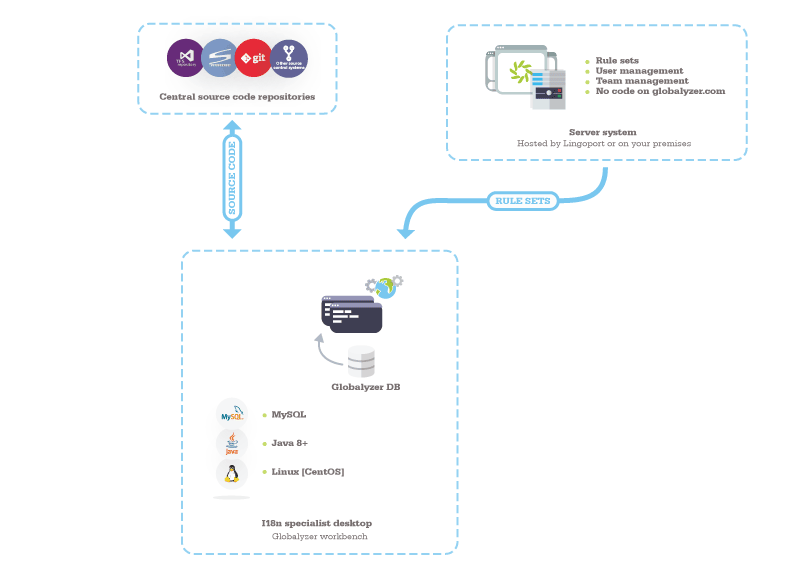Difference between revisions of "Globalyzer Workbench for i18n Specialists"
(→Typical Workflow) |
(→Typical Workflow) |
||
| Line 9: | Line 9: | ||
= Typical Workflow= |
= Typical Workflow= |
||
| − | The i18n specialist uses |
+ | The i18n specialist uses the Workbench to: |
* Get the code from a source code repository, |
* Get the code from a source code repository, |
||
* Create a project from within the Workbench connected to a Globalyzer server |
* Create a project from within the Workbench connected to a Globalyzer server |
||
| − | * |
+ | * Manage the candidate issues |
| − | * |
+ | * Tune the rule sets |
| − | * |
+ | * Refactor the code |
| − | * |
+ | * Push that code to the repository. |
When the rule sets is deemed acceptable, the Workbench user may save the Globalyzer project configuration by exporting it to a file, <code>project.gproj</code>, and push it to the repository for use by other Workbench users or a continuous globalization system. |
When the rule sets is deemed acceptable, the Workbench user may save the Globalyzer project configuration by exporting it to a file, <code>project.gproj</code>, and push it to the repository for use by other Workbench users or a continuous globalization system. |
||
Revision as of 19:05, 27 August 2015
Introduction
The Globalyzer Workbench is power application for i18n specialists. It allows to create Globalyzer projects, test out rule sets and tune them, scan the code, go from the resulting candidate issue to the line in the source which may be modified, externalize strings en masse, etc.
Target User
The typical Globalyzer Workbench user is knowledgeable in internationalization, understands the power of the Lingoport suite, and can create and tune rule sets for members of the development staff.
Typical Deployment
The Workbench resides on a local desktop.
Typical Workflow
The i18n specialist uses the Workbench to:
- Get the code from a source code repository,
- Create a project from within the Workbench connected to a Globalyzer server
- Manage the candidate issues
- Tune the rule sets
- Refactor the code
- Push that code to the repository.
When the rule sets is deemed acceptable, the Workbench user may save the Globalyzer project configuration by exporting it to a file, project.gproj, and push it to the repository for use by other Workbench users or a continuous globalization system.
